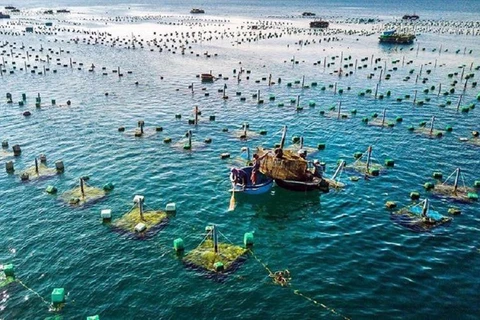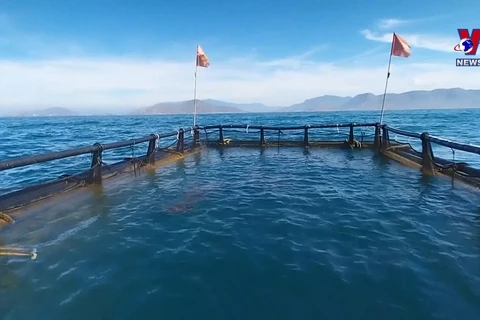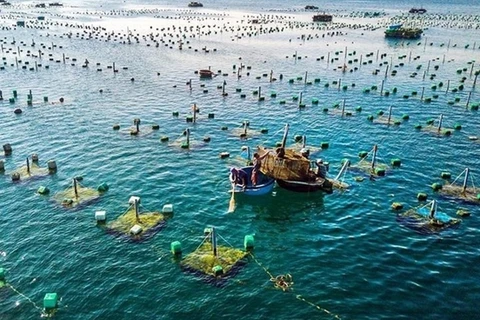Khanh Hoa (VNA) – A conference was held recently in the central-coastal province of Khanh Hoa to discuss solutions to the sustainable development of mariculture in Vietnam.
Speaking at the November 25 event, Deputy Minister of Agriculture and Rural Development Phung Duc Tien said mariculture holds huge potential, given the country's coastline of over 1 million sq.km.
Mariculture will contribute to the successful implementation of the 12th Party Central Committee’s resolution on the strategy for sustainable development of Vietnam's marine economy till 2030, with a vision to 2045, he said, adding that the Prime Minister has issued a decision targeting a mariculture production of 800,000 tonnes by 2025. By the end of 2022, as much as 740,000 tonnes were already achieved.
He called for the spread of successful mariculture models, accompanied by ensuring that the products have proven origin and quality certification.
Vice Chairman of the provincial People's Committee Tran Hoa Nam said major species bred at sea in Khanh Hoa include seabass, cobia, goldfin permit and lobster. Among them, lobster is a high-value species preferred by tourists and foreign import markets.
Vietnam's mariculture area covers 85,000ha with 8.9 million cu.m of cages, contributing to a total production of nearly 750,000 tonnes per year and an export turnover of 11 billion USD last year.
Khanh Hoa has over 97,000 aquaculture cages with an annual output of around 18,000 tonnes, creating jobs for over 4,000 rural workers, he added.
The national strategy for sustainable mariculture development by 2030 states that Vietnam has great potential for mariculture, particularly in raising varieties with high economic values such as plaice, grouper, tuna, oyster for pearls, and seaweed.
With a coastline of over 3,260km and numerous islands and bays, the country ranks as the world’s fourth-largest producer of seafood from aquaculture./.























